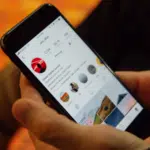At this point, it seems like we’ve been in quarantine for a thousand years. From making TikTok recipes to abstract painting, most of us have done it all to pass the time. If you’re on the hunt for something new to try, we’ve got you covered. Here are some musical skills to learn while you’re stuck at home…
Musical Skills To Learn While Stuck At Home
Home Recording
Now that you’ve got the time, there’s really no excuse not to master the home recording process. The quality of a recording actually has little to do with the gear and everything to do with the skills of the person using it.
- This post perfectly explains the fundamentals of home recording, from setting up the gear to recording techniques and more.
Singing
No matter how much experience you’ve got, singing can be a real challenge for most of us. As a musician, understanding the fundamentals of singing can help you in many other aspects of your career as well.
As a collaborator, it’ll help you understand the recording process and learn to adapt different aspects of your track to coincide with the vocals. Vocal melodies are the key that shapes a song as it progresses, telling a fluent and more dynamic story. Truly understanding how it works can help your next project flow more seamlessly.
————
Check these out…
9 Things Musicians Should Do During Coronavirus Downtime
National Resources for Musicians During the Coronavirus Pandemic
How to Support your Fellow Independent Musicians During the Coronavirus Impact
Music Industry Topics You Should Be Learning About During the Coronavirus Downtime
————
Music Theory
Music theory is a language of its own. It enables us to understand the structure and meaning behind musical composition and allows us to speak with other musicians in a common tongue. It’s a common misconception that music theory limits creativity. In fact, it’s quite the opposite.
Imagine you’re collaborating with another artist on a new song and they hear a rogue note clashing with part of the vocals. Instead of explaining what note it is for 20 minutes, it helps to be able to communicate issues like this seamlessly. If the bass is a step too low in one section, it’ll speed up the creative process to know what that means and how to fix it.
If you plan to never collaborate with anyone else for the rest of your career, I guess this isn’t really necessary. But I assume if you get the chance to collab with Tiësto, you don’t want to embarrass yourself by not knowing what D minor sounds like.
A New Instrument
Learning a new instrument is good for more than just creating more dynamic songs. Being isolated from the world and staying inside for months has been especially hard for music industry natives. We all miss late night jam seshes, collaborating with new people, and sweating under club lights on the weekends.
And now more than ever, It’s important to take extra care of your mental health, and learning a new instrument can help. Learning a new instrument is scientifically proven to drastically improve brain function, helping you with things like:
- processing multiple things at once
- increasing blood flow in the brain
- reducing stress and depression
- regulating mood
- retaining information
*Over 70% of independent musicians struggle with anxiety, depression or some other type of mental health issue. You are not alone. If you or someone you know is struggling during this time, there are mental health resources all over the country available for those who need it. — Check out “Mental Health Resources for Musicians” to learn more…
In Conclusion…
The key to making it through quarantine is to keep yourself busy and motivated. Use this time to expand your mind with new skills like these, and you’ll come out of this forced hibernation better than ever.

